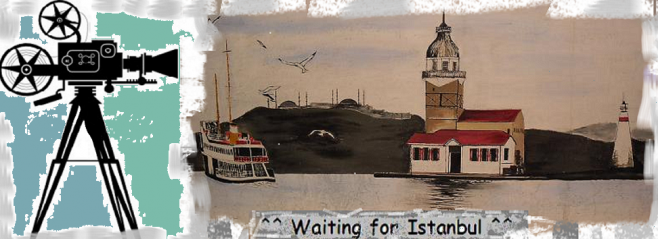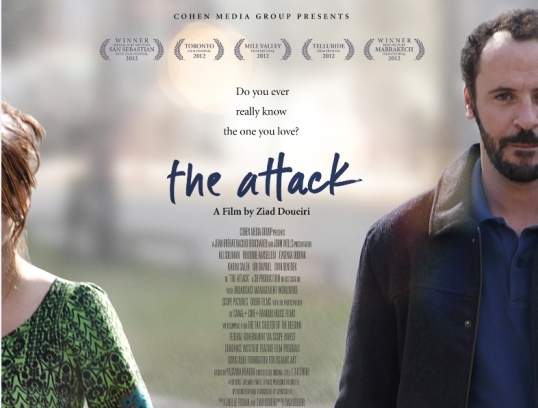Dr. Amin Jaafari is an assimilated Arab surgeon who seems to have it all with a promising career with honors among the Israelis in Tel Aviv. That all changes after a devastating terrorist suicide bombing and his beloved wife, Siham, is found among the dead as the primary suspect. Although initially refusing to accept that as Shin Bet interrogates him, Amin comes to realize the allegations are true. Now, the ostracized Amin resolves to find out on his own why Siham had so strong a conviction that she kept secret from him. However, the answers prove hard to come by and the truths involved have a terrible pain of their own. Written by Kenneth Chisholm
http://www.imdb.com/title/tt0787442/
JUNE 20, 2013
“The Attack” opens with the image of a man and woman embracing, the world blurred behind them. Her face to the camera, the woman cries as they hold each other, but it’s unclear whether he can see her tears. Her unexplained weeping and the ill-defined backdrop make an apt start for this intelligent, involving movie that’s by turns a murder mystery and a politically charged argument about contemporary Palestinianidentity. That it’s also about a troubled marriage becomes evident when the man, a successful Palestinian surgeon living and working in Tel Aviv, is awoken one night and discovers that both his wife and his safe, cosseted world have disappeared after a suicide bombing.
Wholly assimilated, at least as far as he’s concerned, the surgeon, Amin (Ali Suliman), has risen high in his field, progress that has come with the support of his Jewish colleagues. One token of his success is an Israeli award he accepts soon after the story opens, the first — as he lightly reminds his audience — given to an Arab in 41 years. If he’s fazed by this, he doesn’t say; mostly he seems gratified, and happy. Whether he means anything substantial by this seemingly casual nod at the past — specifically the 1970s, an era of spectacular terrorist attacks like that of the Palestinian group Black September on Israeli athletes at the 1972 Munich Olympics — it subtly, and necessarily, widens the movie’s historical framework.

The Israeli police, led by the bullet-headed Captain Moshe (Uri Gavriel), believe that Siham was a suicide bomber whose stealth attack on a restaurant left nearly a dozen children dead. Horrified by this accusation, Amin insists that Siham was an innocent victim herself, a belief that crumbles in the face of mounting evidence.
After a period of mourning, he sets off to discover the truth, propelled by skepticism as well as a deep faith in Siham and their love and their marriage. Driven and then possessed by the question of her guilt — and by extension, his own — he heads off on an investigation that, as he gathers clues, transforms into an inquiry into the burdens of moral responsibility, the costs of political neutrality (or perhaps complacency) and modern Palestinian identity.
Mr. Doueiri, whose films include “West Bank,” manages even the weightiest development delicately. In contrast to the novel, which habitually slips into polemicism and is bookended by a shock that dilutes its punch, Mr. Doueiri creates characters, emotional colors and political contradictions that have the agonized sting and breathe of life.
Using Mr. Suliman’s nuanced turn as ballast — this is what a lonely heart looks like as it shatters — Mr. Doueiri creates a foundation of realism that makes an increasingly meaningful contrast with Amin’s idealized memories of Siham. Seen in flashbacks that will come to haunt this story, she comes across as a woman who at once was a sensual lover, a beautiful bride and a smiling wife, as well as a mystery — if only to her carelessly loving husband.

